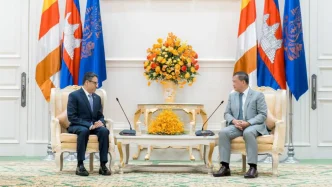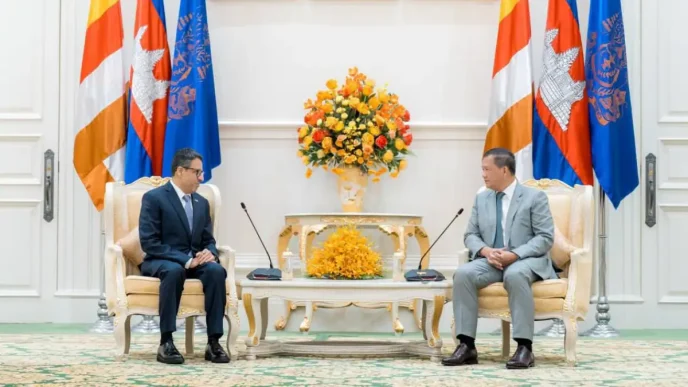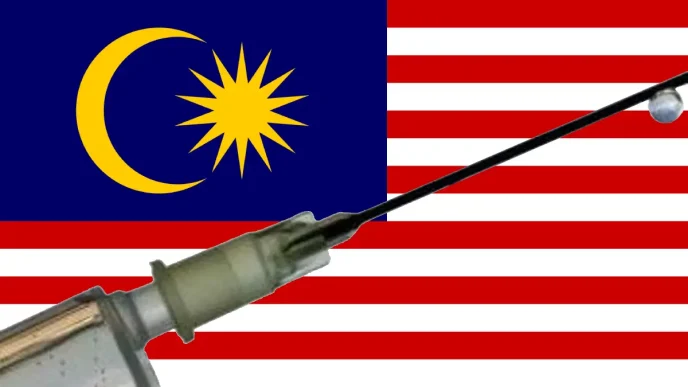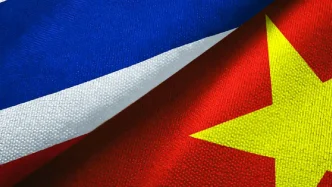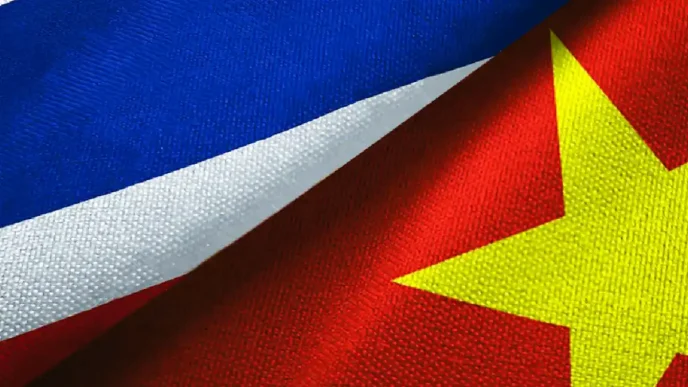Myanmar’s military regime, which seized power in a coup in February 2021, has been orchestrating a sophisticated disinformation campaign on social media platforms, particularly Facebook, to bolster its image and undermine opposition. Leaked documents and insider accounts reveal a coordinated effort involving fake accounts and targeted comment campaigns designed to manipulate public opinion, a tactic that has intensified in recent years as the junta struggles to maintain legitimacy amid widespread resistance and a brutal civil war.
A Systematic Approach to Propaganda
The military junta, led by Senior General Min Aung Hlaing, has long utilized social media as a tool for propaganda. However, fresh evidence uncovered by independent media outlets shows a marked escalation in these efforts since the 2021 coup. Under the guise of the Department of Media Development, established in late 2022 within the Ministry of Information (MOI), the regime has institutionalized its online manipulation tactics. This department, staffed by over 50 personnel, is tasked with creating and managing networks of fake Facebook accounts to post comments that praise the junta while discrediting its critics, including resistance groups and independent media.
The strategy exploits a gap in Facebook’s moderation policies, which focus more on removing inauthentic pages and accounts rather than policing comment sections. This loophole allows the military to flood posts from independent media with pro-regime messages disguised as organic public sentiment. Thit Nyan, a representative of the Myanmar Internet Project, a group monitoring the junta’s online activities, explained the tactic’s effectiveness: “Facebook doesn’t actively moderate comments, leaving it to page administrators. The military exploits this loophole to run coordinated comment campaigns.”
Leaked Documents Reveal Operational Details
Internal memos from the MOI, obtained by local media inside Myanmar in recent months, provide a rare glimpse into the junta’s disinformation machinery. A letter dated July 1, 2025, requested the appointment of new officers to monitor and respond to online content critical of the regime. These officers are instructed to post mobilizing comments under the guise of ordinary citizens, countering narratives from independent media outlets like The Irrawaddy, Myanmar Now and Mizzima. The recruitment criteria target individuals with degrees in English, journalism, international relations, or psychology, offering a modest salary of 275,000 kyat (~US$85) per month, reflecting the regime’s urgency to expand its digital workforce despite limited resources.
Further leaks indicate that the junta struggles to attract full-time staff for these roles, often relying on military families, members of the Union Solidarity and Development Party, and their relatives as daily wage workers. Some of these workers are paid as little as 6,800 kyat (~US$2) per day. The regime’s ambitious goal is to build a force of 10,000 individuals dedicated to online comment campaigns, signaling a significant investment in psychological warfare, or PsyOp which has been a hallmark of military strategy since at least 2012.
The Department of Media Development, despite its name, operates in stark contrast to any genuine media development mission. Led by Director-General Thida Tin, a former MOI official with ties to military propaganda through her husband, retired officer Ko Ko Hlaing, the department oversees a structure divided into three main branches: Administration and Finance, Domestic and International Coordination, and Media Development. Within this, the Policy and Research Unit specifically handles the Facebook comment operations, assigning staff to monitor specific outlets and respond immediately to damaging news with scripted narratives.
Historical Context of Military Propaganda
Myanmar’s military has a well-documented history of using social media for nefarious purposes. Since 2018, Facebook has publicly acknowledged the regime’s coordinated inauthentic behavior, removing dozens of pages and accounts posing as legitimate news sources or civilians to promote pro-military narratives. Notable instances include campaigns in 2017, before the violent clearance operations against the Rohingya in Rakhine State, where military-linked pages spread hate speech targeting the Muslim minority, as documented by the UN’s Independent Investigative Mechanism for Myanmar.
Post-coup, as public support for the military crumbled, Facebook became a critical battleground. After the platform removed many junta-linked pages, the regime pivoted to alternatives like Telegram and TikTok. However, recent shifts in Facebook’s moderation approach appear to have encouraged a renewed focus on the platform, with comment flooding emerging as the latest tactic. Former army officer Zing Yaw, who defected to the Civil Disobedience Movement after the coup, noted the evolution of these operations: “They now use fake accounts to post comments under media content in ways that look like ordinary people talking among themselves.”
Impact on Independent Media and Public Discourse
The junta’s online campaigns are part of a broader assault on free expression in Myanmar. Since the coup, independent media outlets have been banned, and journalists face severe repercussions for their work to report on-ground hostilities and events. The regime’s efforts to control narratives extend beyond mere propaganda; they aim to drown out dissenting voices and create a false impression of public support. The control given to citizens of ASEAN nations—known for their strong position on defamation and to governments for censorship—pale into insignificance when compared to the controlling regime in Myanmar.
Staff within the MOI, speaking anonymously, have described a highly organized workflow. Each morning, individuals are assigned specific outlets to monitor, maintaining two or three fake accounts to post comments as soon as critical content appears. “They tell us who will watch which outlet (news). When a certain type of news appears, we’re instructed to go and comment under it” one official revealed. This systematic approach ensures that independent reporting is quickly countered by a deluge of pro-junta messages, often from profiles that are locked or exhibit identical talking points, as observed by digital rights activists and officials from the opposition National Unity Government (NUG). The Myanmar regime does not need to be strong militarily; it simply needs only to control the narrative to remain in power.
A NUG spokesperson warned of the escalating scale of these efforts. In early 2025, Nay Phone Latt said: “The junta is throwing all its manpower and resources at Facebook.” This surge reflects the military’s desperation to reclaim legitimacy in the eyes of a population that has overwhelmingly rejected its rule, turning to armed resistance and civil disobedience in response to brutal crackdowns.
Broader Implications for Digital Spaces
The Myanmar junta’s exploitation of social media raises critical questions about the role of tech giants like Meta, Facebook’s parent company, in conflict zones. Despite repeated removals of junta-linked content, the platform’s limited oversight of comment sections has allowed these campaigns to flourish. Independent media have sought responses from Meta regarding the regime’s misuse of the platform, but no substantive action or statement has been forthcoming as of late 2025.
Beyond Myanmar, this case underscores the global challenge of balancing free expression with the prevention of state-sponsored disinformation. Social media is architected to foster connectivity, but is now weaponized by iron-fisted authoritarian regimes to manipulate narratives and suppress dissent. In Myanmar, where access to reliable information is already severely restricted, such tactics further erode public trust in digital spaces, making it harder for citizens to distinguish fact from fiction.
A Battle for Legitimacy
As Myanmar’s civil war grinds on, with resistance forces gaining ground in many regions, the military’s reliance on disinformation campaigns highlights its weakening grip on power. Social media, once a tool for mobilization during anti-coup protests, has become a contested space where the junta fights not with weapons, but with carefully crafted words meant to mimic public opinion. Yet, the scale and sophistication of these operations suggest a long-term strategy to shape perceptions, both domestically and internationally.
The leaked documents and insider testimonies paint a damning picture of a regime willing to exploit every available tool to maintain control. As the international community continues to grapple with how to address Myanmar’s crisis, the digital front remains a critical, yet often overlooked, arena of conflict. How platforms and governments respond to such state-sponsored manipulation could determine the future of information integrity in one of the world’s most volatile regions.








